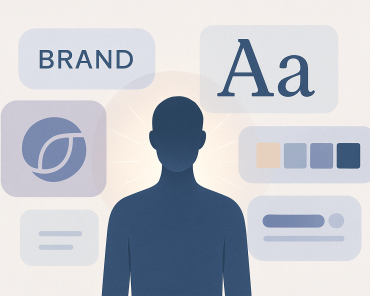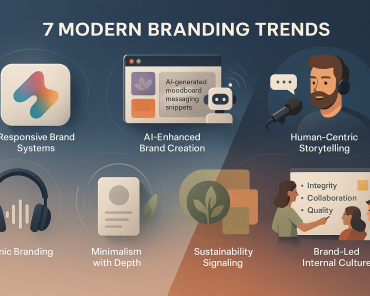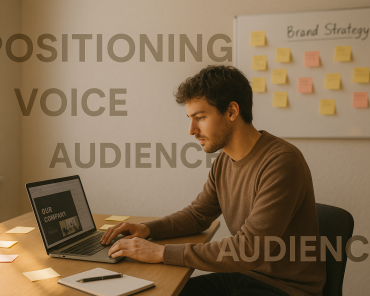While most companies are still “exploring” AI, industry leaders are already transforming operations and boosting revenue. Here’s how real organizations are actually using AI—and what you can learn from them.
Introduction
Remember when “digital transformation” meant launching a Facebook page? Good times.
Now, we’re watching AI reshape entire industries—and most businesses are still forming committees. Meanwhile, AI adoption is accelerating rapidly: 72% of companies now use some form of AI, and generative AI usage has doubled in just one year.
The reality? The gap between AI leaders and laggards is widening fast.
This article breaks down how real companies across industries are using AI to drive measurable value—while others are stuck debating policies. If you’re still on the sidelines, it’s time to get in the game.
The Industry-by-Industry Breakdown
Financial Services: Risk Management to Personalized Banking
- AI in Action: Fraud detection, behavioral risk analysis, AI-powered financial advisors, compliance automation
- Wins: 20%+ drop in fraud losses, expanded access to credit, improved customer retention
- Example: Bank of America’s AI assistant “Erica” now serves over 10 million users
🧠 Takeaway: AI is no longer experimental in finance—it’s operational, and essential.
Healthcare: From Admin Relief to Clinical Support
- AI in Action: Imaging analysis, predictive diagnostics, AI-assisted treatment planning, drug discovery
- Wins: Faster, more accurate diagnoses; reduced research timelines; better patient risk prediction
- Challenge: Integration complexity, regulatory compliance
🧠 Takeaway: AI isn’t replacing doctors—it’s helping them be better doctors.
Retail: Personalized, Predictive, Profitable
- AI in Action: Dynamic pricing, inventory optimization, personalized product recommendations, AI shopping assistants
- Wins: 10–15% revenue growth, 30%+ reduction in supply chain costs, higher customer engagement
- Stats: 86% of retailers plan to expand AI for customer experience
🧠 Takeaway: AI isn’t about “cool tech” in retail—it’s about real competitive advantage.
Manufacturing: The Quiet Revolution
- AI in Action: Predictive maintenance, computer vision quality control, production optimization, smart supply chains
- Wins: 50% less downtime, 20–40% longer equipment life, 15–30% output efficiency gains
🧠 Takeaway: The factories using AI today will be the industry leaders tomorrow.
Insurance: Risk Modeling and Reinvention
- AI in Action: Real-time underwriting, fraud detection, claims automation, usage-based policies
- Wins: Faster claims processing, 14% higher customer retention, 48% improvement in NPS
- Trend: Shift from passive protection to proactive prevention
🧠 Takeaway: AI is reshaping not just how insurers work, but what insurance is.
Why Most AI Projects Fail
- No enterprise-wide AI roadmap
- Poor data quality and governance
- Misalignment with business goals
- Lack of workforce readiness
🧠 Lesson: AI success isn’t about tools—it’s about strategy, integration, and leadership.
What Sets AI Champions Apart
- View AI as a transformation engine, not a tech project
- Invest heavily in workforce training and upskilling
- Embed AI across the value chain (not in isolated pilots)
- Track success with clear business metrics
🧠 Quote: “Managers who use AI will replace those who don’t.” — Rob Thomas, IBM
What This Means for Your Team (and Career)
The AI revolution isn’t replacing humans. It’s reshaping roles:
- Customer service reps now partner with AI to handle complex cases
- Clinicians use AI for faster, more informed decisions
- Techs spend less time troubleshooting and more time optimizing
🔧 New Skills in Demand:
- Data literacy
- Prompt engineering
- AI ethics and governance
- Creative problem-solving
🧠 Takeaway: Don’t fear AI. Learn it. Leverage it. Lead with it.
The AI Champion Advantage
Want to future-proof your brand and your career?
✅ Be the one who connects AI tools to real business needs.
✅ Help teams adopt and adapt.
✅ Share wins. Track impact. Stay human.
Because the companies (and careers) thriving in the next decade won’t be the ones who waited. They’ll be the ones who led.






